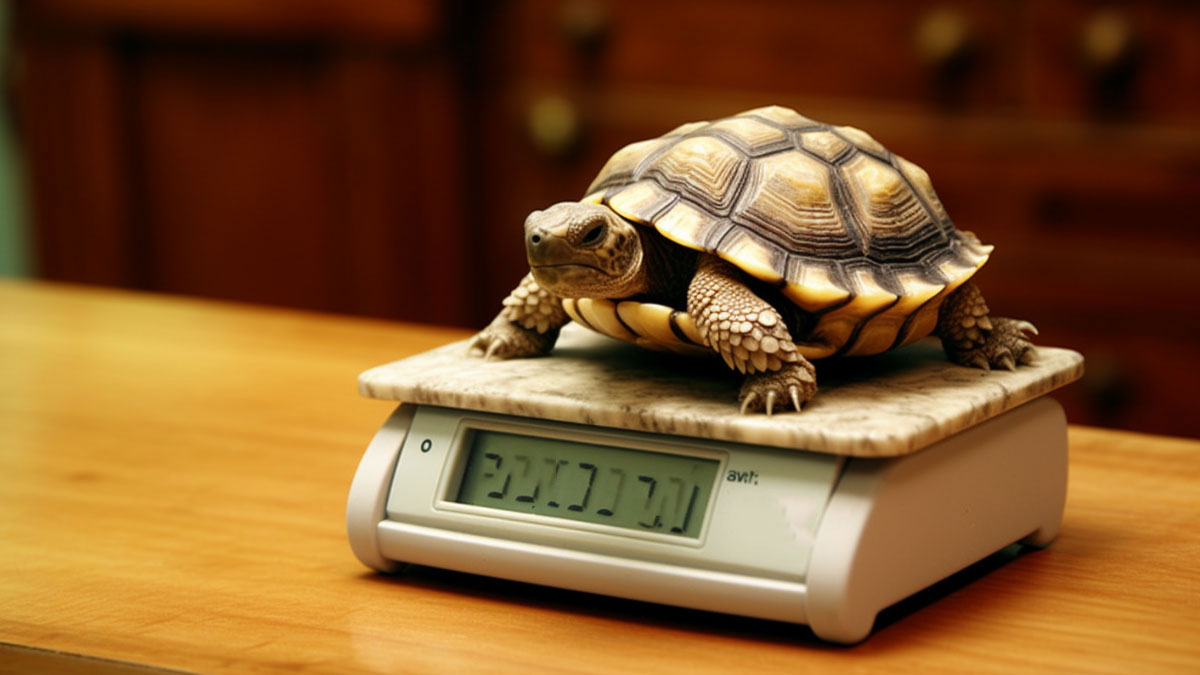How Much Does a Tortoise Weigh? Understanding Tortoise Weights
Tortoises come in various sizes, from tiny hatchlings to huge giants. Understanding how much tortoises typically weigh during their growth can help ensure you properly care for them at each stage.
So, how much does a tortoise weigh? The tortoise’s weight depends greatly on its species and age, ranging from as small as 95 grams to as huge as 800 pounds. Most hatchling tortoises weigh just a few grams up to around 50 grams, and they gain significant weight as juveniles before slowing their growth as adults.
So tortoise weights vary drastically based on numerous factors. Some of them include the species, gender, age, and health of the individual tortoise, all of which are discussed here.
A Table of Tortoise Weights and Sizes Depending On Species
Contents
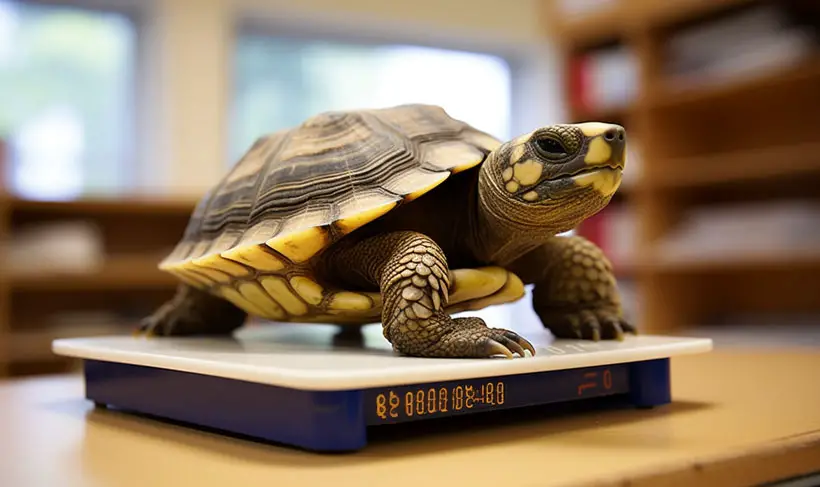
The table below shows how much tortoises weigh and their sizes depending on various species.
| Tortoise Species | Weight | Size |
|---|---|---|
| Speckled Tortoise (Chersobius signatus) | 95 – 160 grams | 3 – 4.5 inches |
| Egyptian Tortoise (Testudo kleinmanni) | 100 – 900 grams | 4 – 5 inches |
| Spider Tortoise (Pyxis arachnoides) | 200 – 400 grams | 5 – 7 inches |
| Greek Tortoise (Testudo graeca) | 2 – 3 pounds | 6 – 7 inches |
| Russian Tortoise (Testudo horsfieldii) | 2.5 – 3 pounds | 8 – 10 inches |
| Hermann’s Tortoise (Testudo hermanni) | 7 – 9 pounds | 7 – 7.5 inches |
| Indian Star Tortoise (Geochelone elegans) | 4 – 5 pounds | 7 – 10 inches |
| Elongated Tortoise (Testudo elongata) | 5 – 7 pounds | 10 – 12 inches |
| Marginated Tortoise (Testudo marginata) | 9 – 11 pounds | 12 – 14 inches |
| Radiated Tortoise (Geochelone radiata) | 35 pounds | 15 – 16 inches |
| Red- & Yellow-Footed Tortoises (Geochelone carbonaria and Geochelone denticulata) | 20 – 24 pounds | 10 – 18 inches |
| Leopard Tortoise (Geochelone pardalis) | 40 – 44 pounds | 10 – 18 inches |
| Burmese Mountain Tortoise (Manouria emys) | 80 – 100 pounds | 1.8 – 2 feet |
| Sulcata Tortoise (Geochelone sulcata) | 50 – 200 pounds | 3 – 4 feet |
| Aldabra Tortoise (Aldabrachelys gigantea) | 350 – 550 pounds | 3 – 4 feet |
How Much Does A Tortoise Weigh?
One of the most common questions about tortoises is how much weight they gain as they grow.
Typically, as seen in the table above, the weight varies depending on various factors, including species. While the table gives a range for the popular species, here is a breakdown of how much tortoise weighs at different life stages.
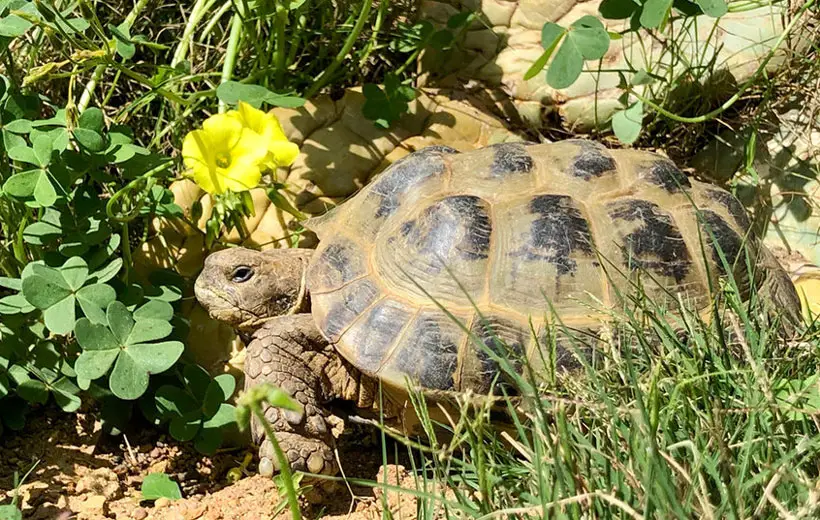
Tortoise Hatchlings
Tortoise hatchlings are tiny, weighing just a few grams. They fit in the palm of your hand, and some species hatch as small as a dime. Most hatchling tortoises range from 10 to 50 grams. They need special care in the early months with proper heating, lighting, and high protein diets.
Juvenile Tortoises
Juvenile tortoises between 1 and 5 years old have rapid growth and weight gain. During this phase, they need higher protein diets to support building muscle, bone, and shell tissue.
They also often double or triple in weight during their first few years. Average yearly weight gains for juvenile tortoises range from 100 to 300 grams.
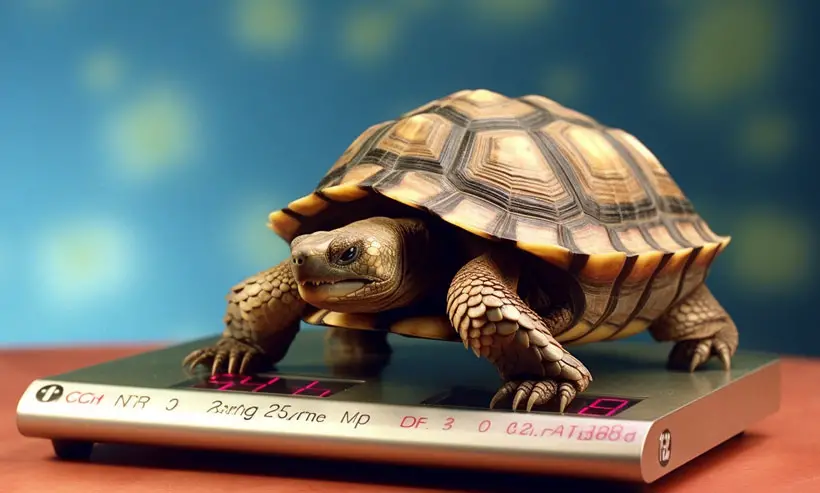
Adult Tortoise Weights
Once tortoises reach their mid-teens, weight gain slows significantly. Many species also become less active at this point. Adult tortoise weights vary drastically by species:
- Small species like Greek tortoises max out at 1 to 2 kg (2 to 4 lbs).
- Medium species like Russian tortoises range from 2 to 5 kg (5 to 11 lbs).
- Large species like Aldabra Tortoise (Aldabrachelys gigantea) can reach 136 to 250 kg (300 to 550 lbs) or more.
The most critical factors for healthy tortoise weight gain are a proper diet, adequate enclosure space, and adequate heating and lighting. You’ll also need to upgrade their enclosure as they grow to accommodate their changing size and needs.
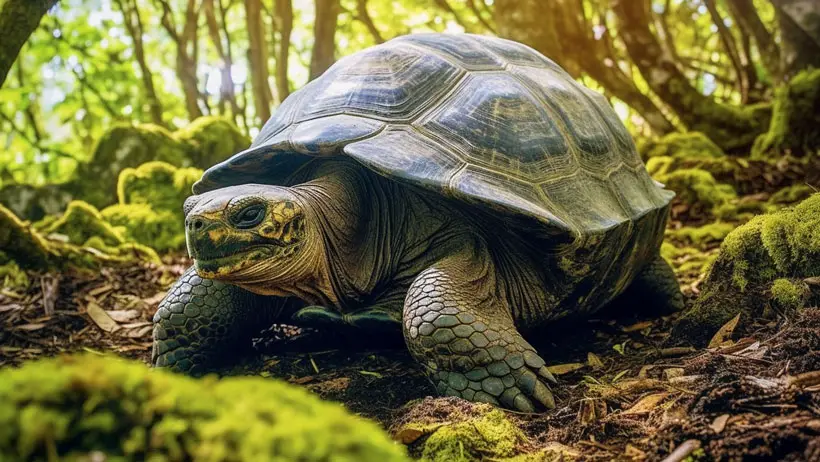
Tortoise Obesity
Overweight tortoises are at high risk of health issues like metabolic bone disease and difficulty walking and moving. Obesity is caused by overfeeding and lack of exercise. Limiting access to excess food and providing ample space for walking and climbing can help control tortoise weights.
How to Properly Weigh Your Tortoise
Weighing and measuring your tortoise regularly is essential to monitoring its health and ensuring proper growth. Here are the key steps to properly weighing your tortoise.
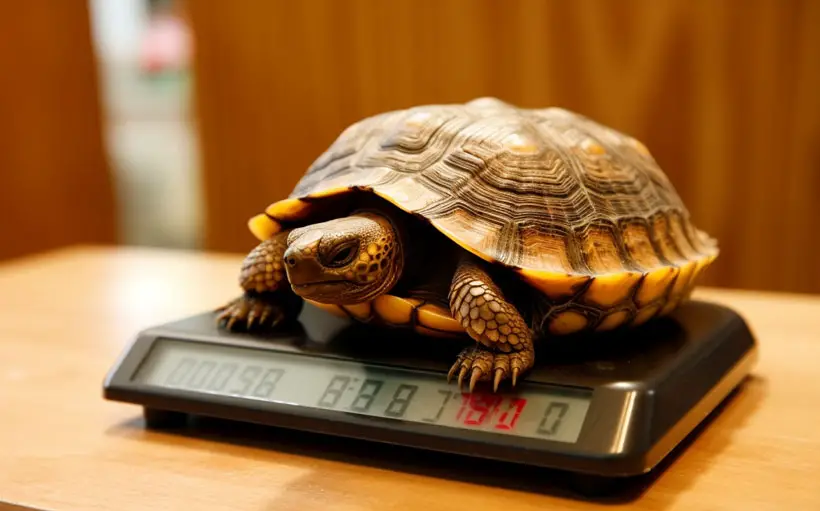
Obtain The Right Scale
Knowing your tortoise’s accurate weight is important for tracking their health and growth. Having the right scale will make weighing easy and accurate.
Get a digital or analog scale suitable for your tortoise’s weight. Kitchen scales work well for small and medium tortoises up to 30-40 lbs.
For larger tortoises over 40 lbs, use a pet or livestock scale that can handle their weight. Check that the scale can accurately measure in increments of 1/2 lb or less in increments.
Preparing The Weighing Area
Prepare a level surface free of clutter to provide an accurate read on the scale. Place the scale on a flat, hard floor rather than carpet to ensure it stays level. Clear any obstacles around the scale so your tortoise can walk on easily. Turn the scale on and press the “tare” or “zero” button to reset the measurement.
Weighing Your Tortoise
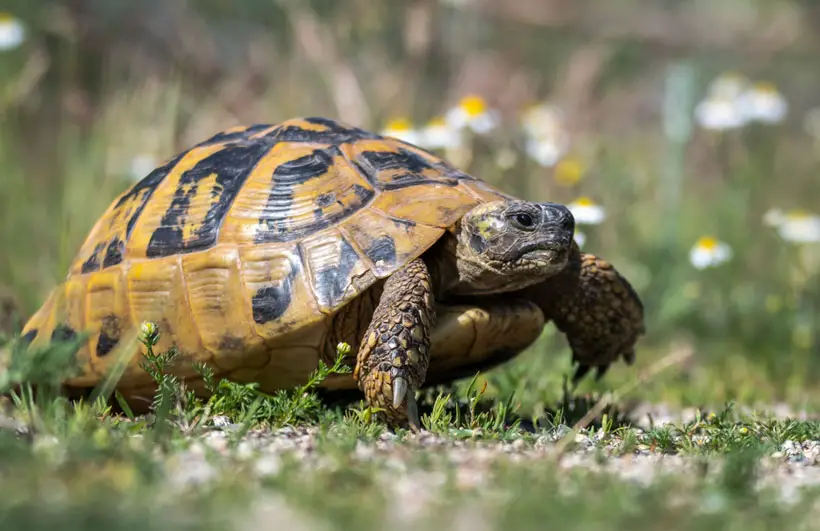
Small tortoises can generally be placed directly on the scale to get an accurate reading. For larger tortoises, have a favorite food ready to entice your tortoise onto the scale willingly.
Let your tortoise walk onto the scale on their own at their own pace. Wait for your tortoise to stand still before recording the weight. Take 2-3 measurements and average them for the most accurate weight.
Weighing Frequency
Weigh small and young tortoises once per month at minimum. As tortoises age and grow slower, every 2-3 months may suffice. Frequent weighing detects health issues early and ensures proper diet.
Here is a video showing how to weigh a tortoise:
Why Weight Your Tortoise?
Weighing your tortoise regularly is an essential part of caring for them properly. You also need the tortoise’s weight to calculate the IBM. It provides valuable health information and ensures they have the correct nutrition and environment as they grow.
Regular weighing also lets you properly dose any medications your tortoise may need. Many drugs for tortoises are prescribed based on their current weight. Significant, unexplained weight loss should prompt a veterinarian visit to diagnose potential health problems early for the best chance of treatment.
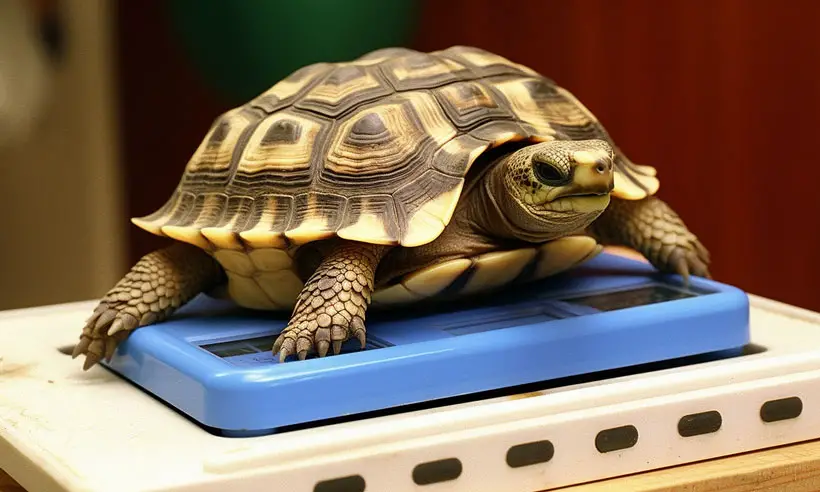
Frequently Asked Questions (FAQs)
These are some of the most asked questions about tortoise weight you might be interested in.
You can tell if your tortoise is overweight if it has a thick layer of fat around its neck, limbs, and shell. Overweight tortoises may also have difficulty moving around and may be more prone to health problems.
The smallest species, the Speckled Tortoise (Chersobius signatus), is the world’s lightest tortoise. Adults typically weigh only 95 to 160 grams, and hatchlings can weigh as little as 0.02 oz (0.5 grams).
Conclusion
How much does a tortoise weigh? It depends on its species and age, ranging from as small as 95 grams to as huge as 800 pounds. Tortoises are found in various sizes and weights, from tiny hatchlings to adults. Weight and size vary greatly between species, from as small as a dime to as large as a pet or livestock scale.
Knowing these varying weights and sizes can help ensure proper and timely care. As tortoises grow, owners must pay attention to their weight gain for their well-being. Accurate weight measurements can be taken with the right scale and proper weighing procedures.

